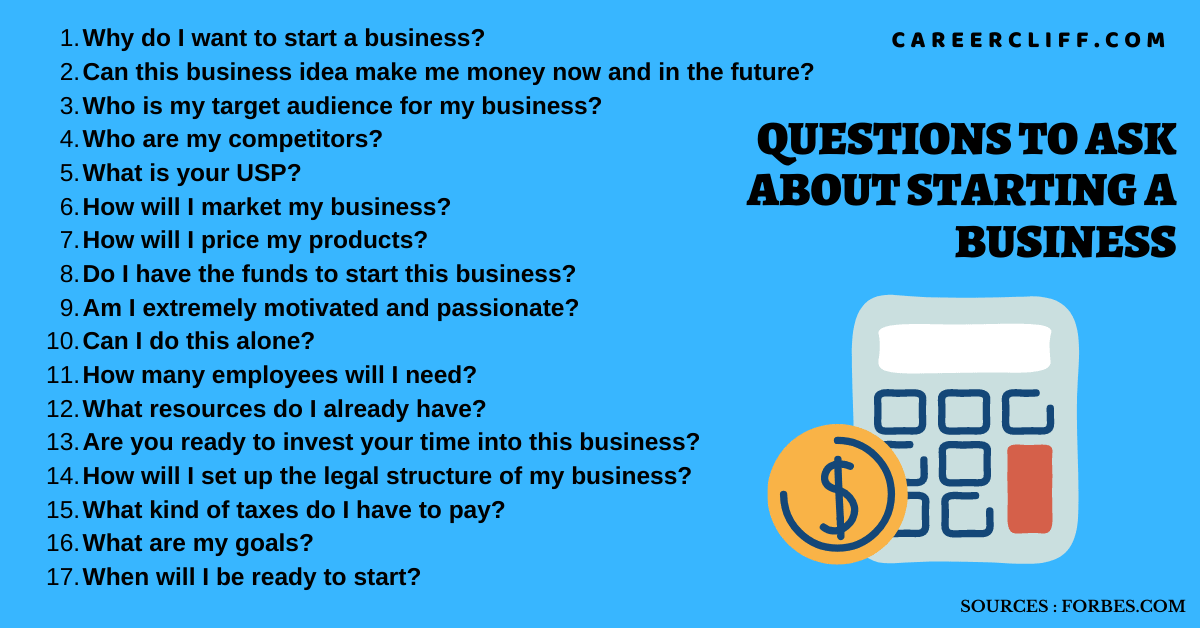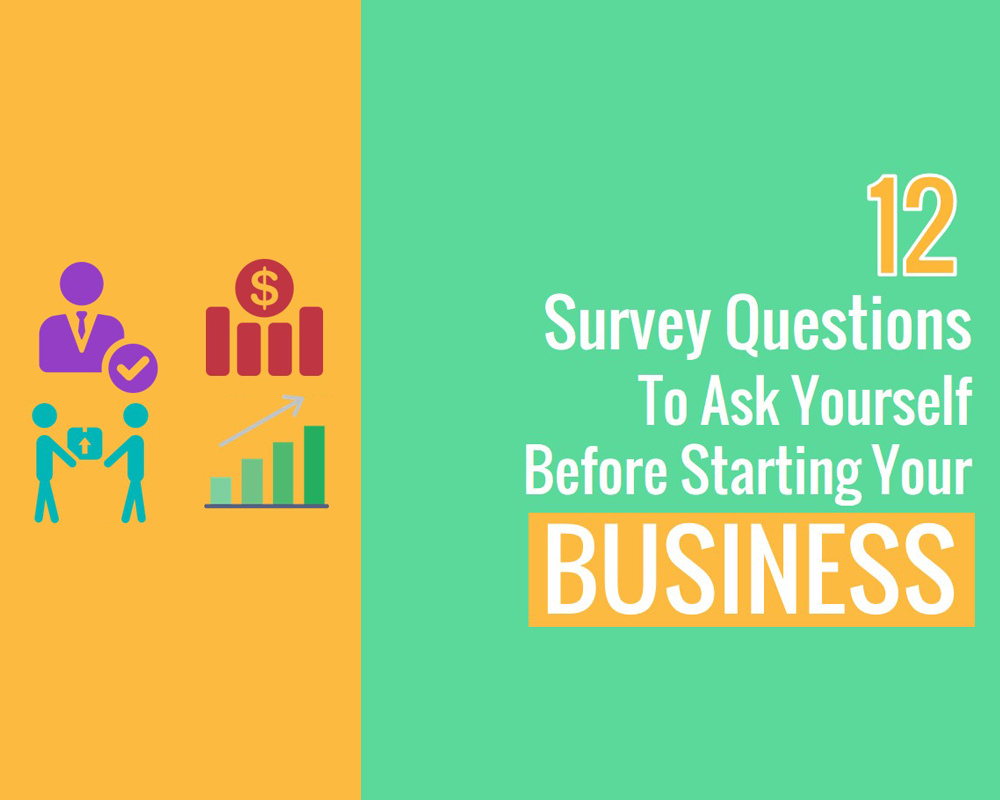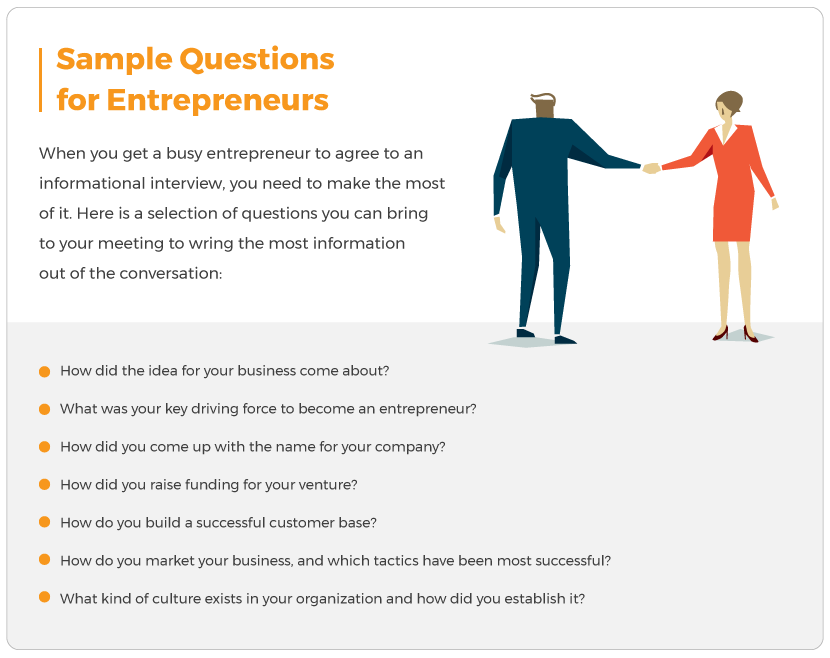Questions To Ask For Starting A Business

The entrepreneurial spirit is alive and well, but the path to launching a successful business is paved with critical decisions. Many hopeful founders stumble not from a lack of passion, but from failing to ask the right questions early on. The stakes are high, and a misstep at the outset can have devastating consequences for both finances and future prospects.
Before taking the plunge, aspiring business owners must embark on a rigorous self-assessment and market evaluation. This involves delving into crucial areas such as personal readiness, market viability, financial sustainability, and operational feasibility. Asking the right questions now can save entrepreneurs from costly mistakes and significantly increase their chances of building a thriving enterprise.
Assessing Personal Readiness
Starting a business demands significant time, energy, and resilience. Are you truly prepared for the sacrifices involved? This isn't just about working long hours; it's about navigating uncertainty and making difficult choices.
Ask yourself: Am I genuinely passionate about this idea? Passion fuels perseverance through inevitable challenges. Do I possess the necessary skills and expertise, or am I willing to acquire them? If not, identifying gaps early is crucial.
Consider your risk tolerance. Entrepreneurship is inherently risky. Can you handle the potential for financial loss and emotional strain? A realistic assessment of your personal readiness is paramount.
Evaluating Market Viability
A brilliant idea is worthless if there's no market for it. Thorough market research is non-negotiable.
Who is my target customer? Defining your ideal customer is the first step. What are their needs, pain points, and buying habits? Understanding these aspects is key.
What is the size of my target market and what makes it viable? Can it support my business? What is the competition? A competitive analysis is essential. Who are your rivals, what are their strengths and weaknesses, and how will you differentiate yourself?
Conducting surveys, focus groups, and analyzing industry reports can provide valuable insights. The U.S. Small Business Administration (SBA) offers resources to help entrepreneurs conduct market research.
Securing Financial Sustainability
Many promising businesses fail due to poor financial planning. Developing a robust financial model is essential.
How much capital do I need to start this business? Be realistic and factor in unexpected expenses. How will I fund the business? Consider bootstrapping, loans, investors, and grants.
What are my projected revenues and expenses? Create detailed financial projections, including a break-even analysis. What is my pricing strategy? Pricing too low may attract customers but hurt profitability. Pricing too high may deter them.
Understanding key financial metrics like cash flow, profit margins, and return on investment (ROI) is crucial for long-term sustainability. Consider seeking advice from a financial advisor or accountant.
Operational Feasibility and Scalability
Having a great product or service is just one piece of the puzzle. You also need to ensure you can efficiently deliver it.
What resources do I need to operate effectively? This includes everything from office space and equipment to technology and personnel. Do I have the right team in place? Assemble a talented team with complementary skills.
How will I manage production, inventory, and customer service? Streamlining these processes is essential for efficiency. How will I scale the business as it grows? Think about scalability early on to avoid bottlenecks down the line.
Can my product or service adapt to future market changes? Flexibility is crucial.
Legal and Regulatory Compliance
Navigating the legal landscape is essential to avoid costly penalties and legal battles.
What business structure is right for me? Choices include sole proprietorship, partnership, LLC, and corporation. Each has different legal and tax implications. What permits and licenses do I need to operate legally? Requirements vary by industry and location.
Are there any industry-specific regulations I need to be aware of? Compliance is mandatory. Consulting with a lawyer or legal professional can provide valuable guidance.
By diligently addressing these questions, aspiring entrepreneurs can dramatically increase their odds of success. The journey may be challenging, but with careful planning and thoughtful execution, the rewards can be substantial. Remember, knowledge is power. Preparation is paramount. Asking the right questions is the first step towards turning a dream into a thriving reality.


















